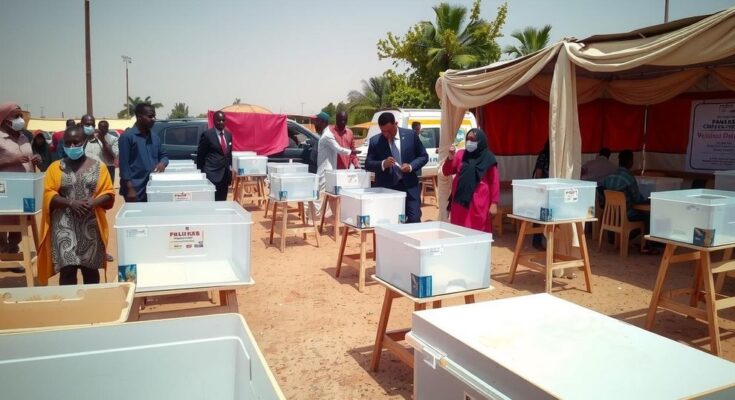Chadians voted in parliamentary and regional elections with low turnout attributed to a boycott by opposition parties. This election marks the end of a three-year military rule transition and is the first in over a decade. Concerns over electoral integrity were voiced by opposition leaders, reflecting challenges in Chad’s political environment.
Chadians participated in parliamentary and regional elections on Sunday, experiencing notably low turnout levels, which were further exacerbated by a boycott from the main opposition groups. The elections signify the conclusion of a three-year transitional period under military rule. This marks the first parliamentary election in Chad in over a decade, following a controversial presidential election that solidified Mahamat Idriss Deby’s leadership after the death of his father, Idriss Deby Itno. Before the official results are revealed in approximately two weeks, voting ceased late Monday, with Deby expressing optimism regarding a transition to decentralization.
Since gaining independence from France in 1960, Chad has struggled to achieve a seamless transfer of power, characterized by a history of authoritarian regimes. The current elections are pivotal for Chad, embattled by issues such as insurgent threats from Boko Haram. They represent the first electoral efforts in the Sahel region under junta control to realize a promised return to democratic governance. Nevertheless, the absence of opposition participation raises concerns regarding the legitimacy of the electoral process.
In summary, the recent parliamentary elections in Chad were marked by a significant boycott from opposition parties, resulting in a disappointing voter turnout. As the nation strives toward democratization following years of military rule, this electoral process reflects a crucial moment in Chad’s political landscape. With opposition leaders voicing skepticism regarding the integrity of the elections, the outcome will be significant for the country’s path forward.
Original Source: apnews.com




